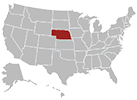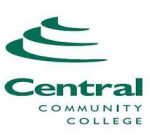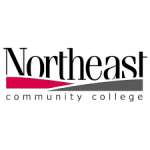
With a wide range of great options to choose from, it has never been easier to find the right home health aide program in the state of Nebraska.
The amazing growth that has been taking place within this area of the healthcare field has been great to see.
Whether you reside in Omaha, Lincoln, Bellevue, Grand Island, or Kearney, you will have your chance to enjoy this wealth of opportunity during the years to come.
Be sure to read on and learn more about how to become a home health aide in the cornhusker state.
5 Home Health Aide Schools in Nebraska
Providence Health Career Institute LLC

Located in Lincoln, this four-week program will only cost students $410, making it a very popular choice.
The minimum age requirement is 18 and applicants will need to make sure that they are able to provide a high school diploma or a general equivalency diploma.
If these requirements have been met, a tuberculosis skin test is also given.
Once the prospective student has passed a reading comprehension exam, they are given the chance to get started.
All education courses at Providence Health Career Institute LLC have been approved by the state of Nebraska’s nursing and education departments.
Central Community College Columbus

Columbus area residents are able to enroll in this program, which takes place over the course of a mere seven weeks.
Costs are also low, as students are able to complete their home health aide training for the price of $345.
A high school diploma is required or the student must be able to produce a general equivalency diploma.
Students must be over the age of 18 and be able to pass a reading comprehension exam as well.
A reading comprehension exam is also necessary before coursework can begin.
Students that wish to transfer credits and continue their studies will also be able to do so with ease.
Northeast Nebraska Community College

This program caters to those who reside in the Northfolk region and can be completed within six weeks.
Costs are not prohibitive and students can enroll for $400.
The requirements are no different from the vast majority of programs in this field.
For starters, students will need to be at least 18 years of age, at a minimum.
A diploma or a general equivalency diploma is required, in addition to a tuberculosis skin test.
A reading comprehension exam and a math competency exam must be passed, too.
Bryan College of Health Sciences
![]()
Also, conveniently located in Lincoln, Bryan College of Health Services offers students the chance to enjoy advanced teaching methods and state-of-the-art equipment.
The 16-week program is a bit longer than some of the others on this list but can be completed for a mere $500.
The minimum age for this program is a bit lower, as students are allowed to enroll at the age of 16.
A physical exam, tuberculosis skin test, and a criminal background check are also required before enrollment is complete.
Mid Plains Community College
![]()
Mid Plains Community College assists students in the North Platte region and the minimum age requirement of 16 allows a wide range of prospective home health aides to get started.
The program can be completed within 7 weeks and will only cost a student $450.
There are a few additional requirements that will need to be fulfilled, as well.
A criminal background check must be completed before a student can proceed.
As long as the tuberculosis skin test and an English competency exam go according to plan, a prospective home health care aide will have all the tools that they need to get started.
Home Health Aide Schools in Nebraska – Summary Table
Top 5 Schools in Nebraska
| School Name | Address |
|---|---|
| Providence Health Career Institute LLC | 4600 Valley Rd #412, Lincoln, NE 68510 |
| Central Community College Columbus | North Education Center, 4500 63rd St, Columbus, NE 68601 |
| Northeast Community College, Nebraska | 801 E Benjamin Ave, Norfolk, NE 68701 |
| Bryan College of Health Sciences | 1535 S 52nd St, Lincoln, NE 68506 |
| Mid Plains Community College | 601 W State Farm Rd #140, North Platte, NE 69101 |
Salary
On average, Nebraska home health aides will command a salary of at least $25,000 per year, with a slight uptick depending on location.
Lincoln, Omaha, and Kearney home health aides make a shade over $25,000 per year, on average.
Bellevue home health aides make roughly $26,000 per year.
Annual Salary Range:Average Salary of Home Health Aides in Nebraska
| City Name | Salary |
|---|---|
| Omaha | $26,050 |
| Lincoln | $25,924 |
| Bellevue | $26,050 |
| Grand Island | $25,566 |
| Kearney | $25,566 |
| Fremont | $25,661 |
| Hastings | $25,566 |
| North Platte | $24,788 |
| Norfolk | $23,202 |
| Columbus | $25,566 |
Regional Salary in Nebraska
| Region | Employed | Avg. Annual Salary | Avg. Hourly Pay | Top 10% Annual Salary | Bottom 10% Annual Salary |
|---|---|---|---|---|---|
| Grand Island, NE | 260 | $31,780 | $15.28 | $37,990 | $25,100 |
| Lincoln, NE | 1,720 | $32,020 | $15.39 | $37,630 | $28,740 |
| Omaha-Council Bluffs, NE-IA | 5,650 | $33,540 | $16.13 | $39,010 | $29,570 |
* Employment conditions in your area may vary.
Frequently Asked Questions
How many clinical hours are needed to complete a Nebraska HHA program?
To become a home health aide in the state of Nebraska, 75 classroom hours and 16 clinical hours must be completed.
Is a home health aide program the only way to become certified?
If the prospective Nebraska home health aide does not want to complete the traditional program, they can complete a nursing assistant program or the equivalent nursing coursework.
A home health aide competency evaluation must be passed as well.
How much does a home care business license cost in Nebraska?
The application must be sent to the Nebraska Department of Health for approval and applicants must spend a $1,000 fee before they can proceed.
What is the job outlook for Nebraska HHA graduates?
The Bureau of Labor Statistics predicts a continued uptick of job opportunities in the home health aide sector.
There is expected to be a 33 percent increase in home health aide positions in the state of Nebraska by the time 2026 rolls around.
How does this compare to the national standard?
Nebraska actually lags slightly behind the requirements that have been put into place by the National Institute of Health in this regard.
They require at least 120 hours of additional clinical work from home health aide students.




